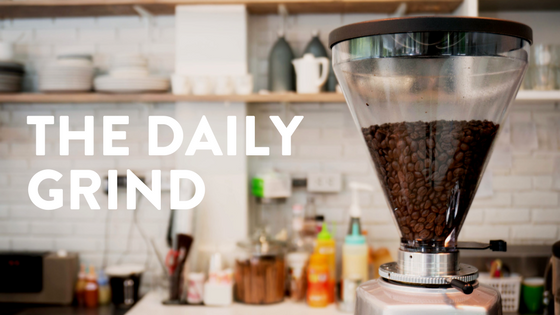
A life without good coffee is hardly any life at all. Indeed, on many days, our most urgent mission is to brew the finest cup possible, and to reach this higher plane of achievement, we seek out the world’s best varieties and stock our kitchens with the perfect equipment.
Yet here’s a secret that’s often overlooked: Without the right grind, even our best and most fervent intentions won’t amount to a hill of beans.
Grinding coffee beans is the key to releasing the essence they contain. It’s the action through which the coffee we seek becomes real and perhaps the single most important part of the brewing process. Use the incorrect grind in the coffee-making method of your choice and you’ll end up with coffee that’s all wrong.
Each brewing style requires grounds of a certain size in order to pull out the desired flavors in the time allotted for their contact with water. Use a fine grind in a longer brew cycle, for example, and you’ll pour an experience that’s overly bitter and excessively strong while a coarse grind in a short brew cycle will end in coffee that’s tragically timid and limp.
The grind is all and it all starts with the grinder itself. There are two types: burr and blade. Blade grinders are inexpensive but inconsistent. Like a miniature food processor, they’re easy to use but their spinning blades barely chop some beans while annihilating others. Burr grinders are far more reliable. They send beans between a rotating disc and a stationary surface whose “teeth” break them apart until their grounds are the chosen size and able to drop into a collection compartment below. There are two types of burr grinders: Conical and wheel. Conical grinders are less likely to clog than wheel grinders and are our top choice. With a conical burr grinder, your grounds will always be right-sized and life will always be sweet.
As to what size that should be, here’s our guide:
- Extra Coarse. Grounds are chunky and about the size of sunflower seeds. Best for cold brewing.
- Coarse. Grounds are about the size of a sesame seed. Good for percolators, French press, and other plunger pots.
- Medium-Coarse. Grounds are like kosher salt or rough sand. Ideal for flat-bottomed filter automatic drip coffee makers.
- Medium. - Grounds are similar to table salt. Preferred for vacuum pots, siphon brewers, manual pour-over cone filters like Chemex, and automatic coffee makers with conical filters.
- Fine. Grounds are finer than sugar yet a step above powder. Best for espresso moka pots.
- Extra Fine. Grounds are a powder like flour. Ideal for espresso machines and ibriks, i.e. Turkish coffee makers.
One last note: Always grind your beans just before brewing. The many complex flavor compounds they contain are surprisingly delicate, and the longer they sit broken open in the presence of oxygen, the more their aroma and other essential contributors to taste break down. At that point even the most perfect grounds won’t save you or the coffee you’re counting on to beat the daily grind.
